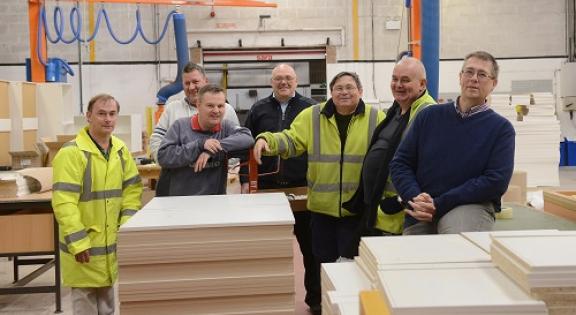If you have spent years growing your social enterprise and nurturing your staff, you will be aware of the knock-on effect on suppliers, customers and employees closing your business will have. It can also have a wider effect on your local community.
When an organisation is sold to an external competitor, there is always a risk that the business will be stripped of its machinery, its talent and its intellectual property. It may be closed and the production or services transferred to another site, possibly hundreds of miles away from its base.
Employee ownership offers a number of opportunities for departing business owners to embed the social enterprise in its local community and economy.
Below we examine the different models of employee ownership, all of which are designed to protect the employees’ interests and develop the businesses sustainably for the future.
Models for employee ownership:
The simplest form of employee ownership occurs when employees have a direct stake in the company. There are several business models that work for direct ownership either through individual shareholding or via a mutual or co-operative approach.
In North Wales, the employees of Caffi Florence took over a successful cafe and tea room business in Loggerheads Country Park. They opted to take a mutual approach and set the new company up as an industrial and provident society.
It is possible to set up a Trust to retain ownership of the company on behalf of its employees. Employees can then be represented on the Trust board. The trust model can be used to support a business owner’s phased exit from a company. A trust can be gifted profits from a company and these profits can be used to buy shares in the company over a long period of time.
The Trust approach to employee ownership is probably the most well-known. It is famously used by the John Lewis Partnership whose 86,000 employees, or ‘partners’ have a voice in the running of the business through a series of staff councils, staff magazines and other communication tools.
The Partnership pays an annual bonus to its staff based on the previous year’s profits. This has amounted to a value of at least a month’s salary every year since 1999. Other businesses that utilise this approach include worldwide design and engineering consultants ARUP who moved to employee ownership in 1977 and Wilkins and Sons Ltd, manufacturers of jams and preserves enjoys extensive employee ownership through a trust.
As the name suggests, a hybrid approach is a combination of direct ownership and a trust. Although the proportions of the shareholding split are not set, the employee trust would likely hold the majority of business shares and control the enterprise on behalf of everyone.
The biggest benefit of choosing a hybrid employee ownership model is the fact that by combining the two main types of employee ownership, it enhances their advantages and reduces the downsides.
Aber Instruments was founded in Aberystwyth in 1988. It produces measurement equipment for use in fermentation and brewing. Originally owned by 4 partners it decided to widen share ownership using a tax advantaged share ownership scheme. Individual employees acquired a direct share in the business.
Ex-Managing Director Barry Wise explained that, “Most of [our potential exit routes] involved an equity stake sitting outside the company. We didn’t want that. We’d always been an independent company owned by members of the company, we wanted to guarantee jobs in Aberystwyth. We wanted to guarantee engagement by the staff”.
From 2004, a proportion of profits were paid into an Employee Benefit Trust where they were used to gradually buy out the shares of the founders. Today, the company is 100% employee owned and the company is still firmly rooted in its home town of Aberystwyth. It cannot be sold to an external buyer unless the employee owners and trustees agree to the sale.
Would you like to speak to somebody about employee ownership?
Please contact Business Wales by calling 03000 603000 and quoting ‘EO2019’. We will be happy to arrange an informal discussion with one of our Social Business Wales employee ownership experts.

